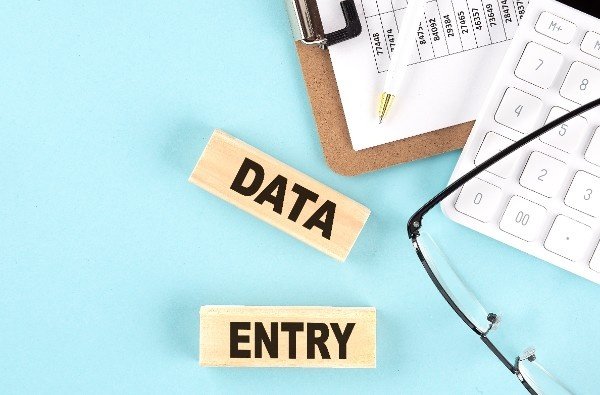
Launch Your Career in Data Entry: A Guide to Skills and Job Search
Start Your Data Entry Career: Skills and Job Search Strategy
Starting a career as a data entry professional while entering the job market is one of the easiest ways of starting a career in the information age era. As a new college graduate, career changer, or just a telecommute job search applicant, telecommute data entry jobs provide an excellent starting point. But in order to get a good job and advance in this profession, one must be aware of what the employers require of them, how to acquire the skill set, and where the best chance is.
Here in this blog, we will see what is data entry, the fundamental skills you will require, how to create your profile, and daily tips on job searching to begin your career. We will also provide you with a few of the most usual questions to help you move ahead.
What Is Data Entry?
Data entry is typing, editing, or updating data into a computer database or system. It is typing numbers, words, or other data into software, CRMs, or spreadsheets.
Data entry careers are easily found in the following sectors:
• Healthcare
• E-commerce
• Finance
• Education
• Government
• Research and analysis
The job varies slightly by industry but the overall task is the same—efficient, quality data management.
Data Entry Job Skills
Though data entry is an apparently easy job, the job needs technical as well as soft skills.
1. Typing Speed and Accuracy
It is the most essential skill for data entry. The majority of employers require:
•40–60 words per minute (WPM) or greater typing speed
•High accuracy with few or no errors
Tip: Practice with websites like TypingTest.com or Ratatype.
2. Attention to Detail
Since errors in data may have severe consequences (especially in medicine or finance), accuracy is extremely vital.
3. General Computer Skills
You must be proficient at handling:
•Microsoft Office (especially Excel, Word)
•Google Workspace (Sheets, Docs)
•CRM or data entry software (e.g., Zoho, Salesforce)
4. Time Management
Data entry is generally time-bound. Having the ability to deliver within a stipulated period of time without any compromise on quality is important.
5. Communication Skills
Although data entry is generally a solo career, there could be instances where you have to clarify data points, project errors, or communicate with teams. Simple written and verbal communication suffices in such situations.
6. Confidentiality and Ethics
You may be dealing with sensitive data such as customer information, health information, or monetary information. It is essential to have some knowledge of data privacy and ethical procedures.
How to Build Your Profile for Data Entry Jobs
If you’re just getting started, here’s how to become job-ready:
1. Create a Strong Resume
Highlight:
• Typing speed and accuracy
• Proficiency in software (Excel, Google Sheets, etc.)
• Relevant academic background
• Internships or freelance projects (if any)
Even simple experiences like handling data for college clubs, surveys, or online gigs can be included.
2. Take Online Courses & Certifications
Platforms like Coursera, Udemy, and LinkedIn Learning offer beginner-friendly courses on:
• Microsoft Excel
• Data entry methods
• Typing speed improvement
• Google Sheets learning
Some even give a certificate, which is an added benefit on your resume.
3. Create a Typing Test Report
Evidence of typing speed is sometimes required by employers. Test on:
• https://www.typingtest.com/
• https://www.ratatype.com/
Download and include your typing certificate with job applications.
4. Freelance Experience
Start with small projects by offering data entry services on freelance websites:
• Fiverr
• Upwork
• Freelancer
• Truelancer
Even a couple of small projects can give you experience, reviews, and work samples.
5. Develop a LinkedIn Profile
Starting a LinkedIn profile can help you:
•Show your certificates
•Highlight your data entry skills
•Emphasize your data entry skills
•Get networked with recruiters or companies for hiring entry-level positions
Job Search Tips for Data Entry Freshers
Your profile is ready to go, here's how to get selected and get placed:
1. Use Correct Job Portals
•Search and apply on:
•Indeed
•Naukri
•Glassdoor
•Internshala (for internships)
•Quikr Jobs and OLX (for part-time employment)
Use keywords such as "Data Entry Operator," "Typing Job," "Remote Data Entry," and "Fresher Data Entry Jobs."
2. Set Alarms and Apply Regularly
Most websites support setting alarms. Apply directly as soon as new posts turn up—early birds get the chance.
3. Avoid Scams
Be cautious of:
•Jobs requesting money up front
•Employers promising "easy money" with no need of a skill
•No company name or vague job description
Always follow up on the company prior to disclosing personal information.
4. Practice Tests
Most companies give basic typing speed, Excel proficiency, or data accuracy tests. Practice on:
•practice tests online
•microsoft Excel practice tests
•typing speed websites
5. How to Ace the Interview
Be ready to talk about:
•How you plan time in the process of doing repetitive tasks
•Speed typing and your rate of getting things right
•Use of Excel shortcuts or formulae
•忆eyerject experience in previous projects (even school or freelance)
Pro Tip: Bring or send a small portfolio of samples if possible—perhaps you have created spreadsheets or mock entries.
Career Growth Opportunities in Data Entry
Even though the entry-level data entry jobs are basic, they can be stepping stones for opportunities like:
• Data Analyst
• Operations Executive
• Administrative Assistant
• CRM Manager
• MIS Executive
By acquiring skills on how to build your skills in Excel, analytics, or database software (SQL), you can build a number of career opportunities.
CONCLUSION
Data entry is an excellent start for the job market career, especially for beginners. It does not demand world-class qualifications but demands effort, focus, and receptiveness to learning.
Understanding priority skills, improving your profile through a course and low-level tasks, and targeted applications, you can start your data entry career with a sound footing.
Remember: every successful career start is a baby step. Let your data entry role be the baby step that takes you to higher heights.
FAQs
Q1. Can I work as a home-based data entry operator?
Answer: Absolutely! There are several companies which hire home-based data entry operators. You will need only a good internet connection, a laptop/computer, and some basic productivity software.
Q2. What is the salary of a fresher data entry employee?
Answer: For new data entry jobs in India, fees are ₹10,000–₹18,000 per month. Freelance or half-time could be by the hour or by task (₹100–₹500/task). Experience can push this up high.
Q3. Is data entry a long-term career opportunity?
Answer: Data entry can be the starting point, but after that, it becomes operations, data handling, analytics, or admin support roles. You can upgrade to senior and well-paying roles through upskilling.



